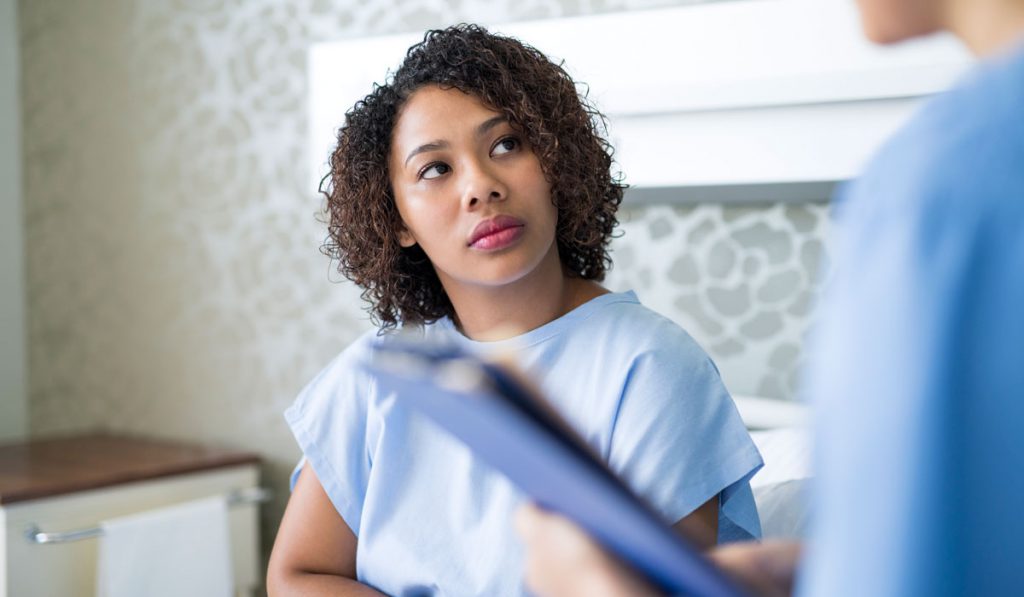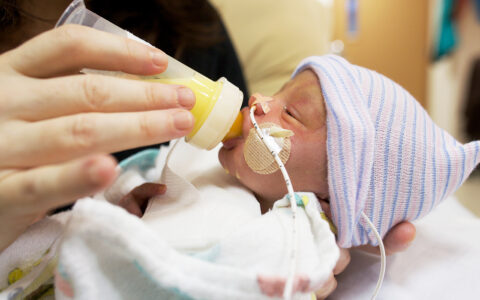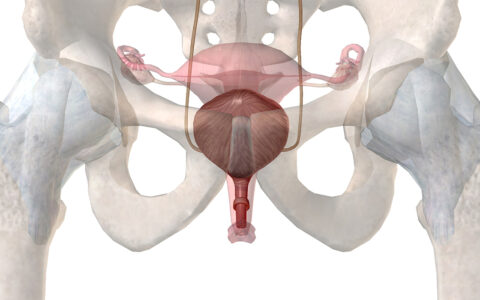Endometriosis currently affects one in ten reproductive-aged women in the U.S. with symptoms such as painful periods (dysmenorrhea), chronic pelvic pain, pain with intercourse (dyspareunia), and infertility. Because endometriosis grows or regresses dependent on hormone exposure, combined oral contraceptive pills, which include ethinyl estradiol and various progestins, are used to control the condition, particularly in women not trying to conceive.
Orilissa® (elagolix), a GnRH receptor antagonist, was FDA approved in 2018 and is the first new treatment for endometriosis in more than 10 years. It is supplied as a tablet. LUPRON DEPOT® (leuprolide acetate for depot suspension) has a similar mechanism of action but is administered as an injection.
“Our primary goal is to reduce the pain of endometriosis, so the patient can live a normal life,” said Amanda Yunker, D.O., an associate professor of obstetrics and gynecology at Vanderbilt University Medical Center. “Aside from surgery, we commonly use birth control pills and IUDs. This new therapy is simply one additional option in the line of medical therapy.”
The Research Behind Elagolix
Elagolix inhibits endogenous GnRH signaling by binding competitively to GnRH receptors in the pituitary gland, resulting in dose-dependent suppression of luteinizing hormone and follicle-stimulating hormone. This leads to decreased blood concentrations of estrogen, estradiol and progesterone, creating a temporary menopause. The downstream effect is that endometriosis is not stimulated by the patient’s natural hormones.
Two similar, double-blind, randomized, 6-month phase 3 trials evaluated the effects of two doses of elagolix – 150 mg once daily (lower-dose group) and 200 mg twice daily (higher-dose group) – as compared with placebo in women with surgically diagnosed endometriosis and moderate or severe endometriosis-associated pain.
At three months, the proportion of women who met the clinical response criteria for each of the two primary end points (dysmenorrhea and non-menstrual pelvic pain) was significantly greater among women who received each elagolix dose than among those who received placebo. A more recent study showed that an additional six months of elagolix treatment provided sustained reductions in dysmenorrhea, nonmenstrual pelvic pain, and dyspareunia, with no new safety concerns associated with long-term use.
Medical vs. Surgical Treatment
Despite these results, Yunker does not prescribe Orilissa and Lupron as first-line therapies because of the side effect profiles. “While these results show promise, it’s still fairly early,” she said. “Patients need to be counseled regarding the side effects, which includes all the things you would associate with menopause – hot flashes, insomnia; bone density effects. Orilissa, like Lupron, is a short-term solution.”
“Some patients try to postpone surgery for a number of reasons.”
And while medications can slow endometriosis proliferation, surgery is still considered the gold standard in endometriosis treatment. Yunker says she considers the patient’s goals. “Some patients try to postpone surgery for a number of reasons – they don’t want to take off from work, it’s not a good time in their lives, etc. If their symptoms are severe and they need some way to control the pain, we will discuss medical options first. The drugs can help control endometriosis growth and reduce pelvic inflammation.”
In some cases, medication is combined with surgery. “If they have surgery and don’t plan on getting pregnant any time soon, we need to put them on something that suppresses endometriosis growth and prolongs the time before their pain returns and they need another surgery,” Yunker said.
A New Era in MIGS Surgery
Minimally invasive gynecologic surgery (MIGS) for endometriosis and other conditions has continued to evolve through improved technology and better training. In 2001, the American Association of Gynecologic Laparoscopists (AAGL) developed a Fellowship in Minimally Invasive Gynecologic Surgery to address the concern that most graduating residents in obstetrics and gynecology were not fully trained in modern endoscopic surgery. AAGL currently has 50 fellowship sites and many programs participate in a match system.
“The surgery itself hasn’t changed, but the technology continues to improve over time,” said Yunker, a graduate of the program and MIGS fellowship director in the Vanderbilt Department of Gynecology. “Having this training opportunity for residents and fellows creates a whole new generation of gynecologic surgeons who are experts in this type of surgery.”





